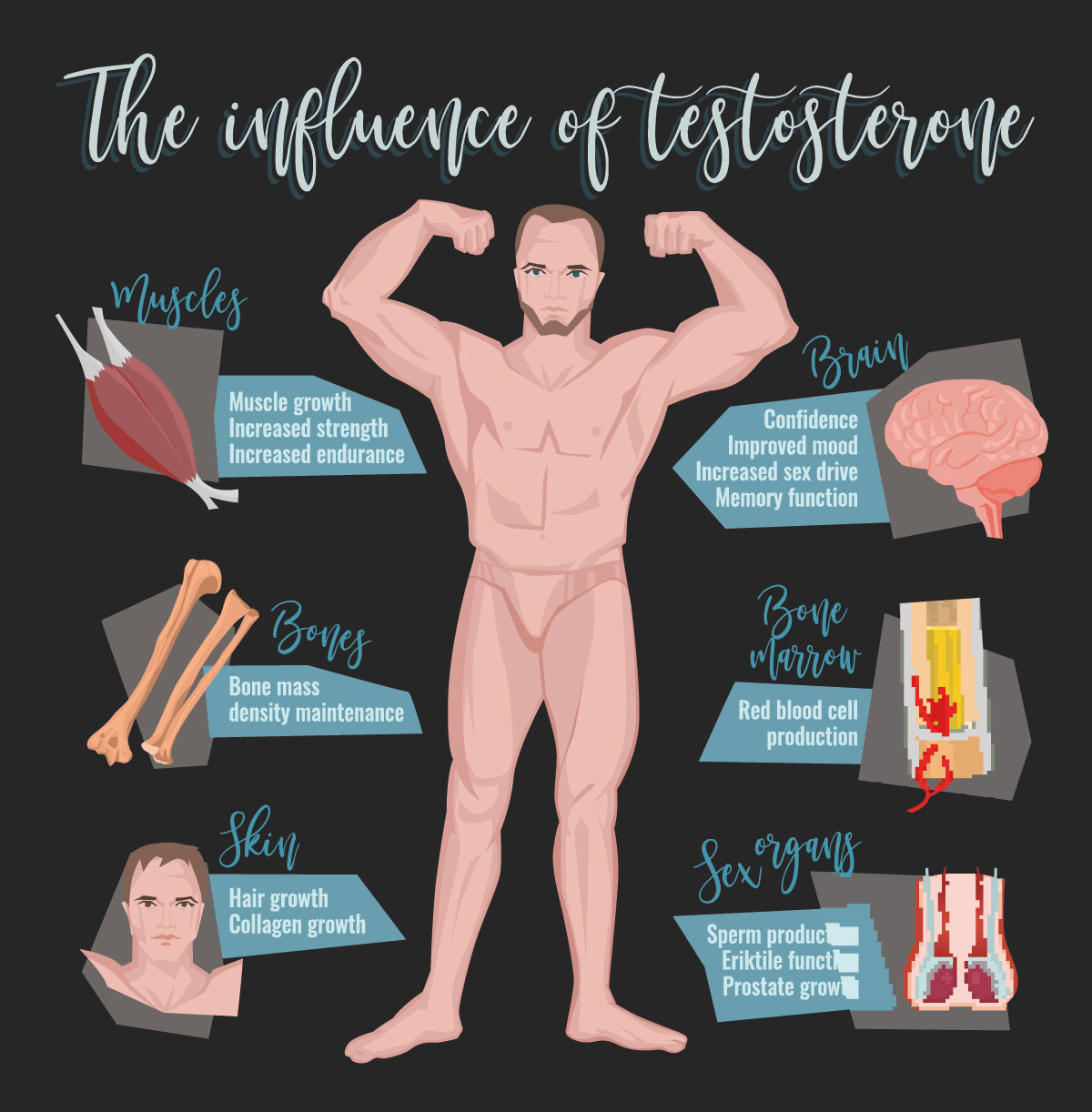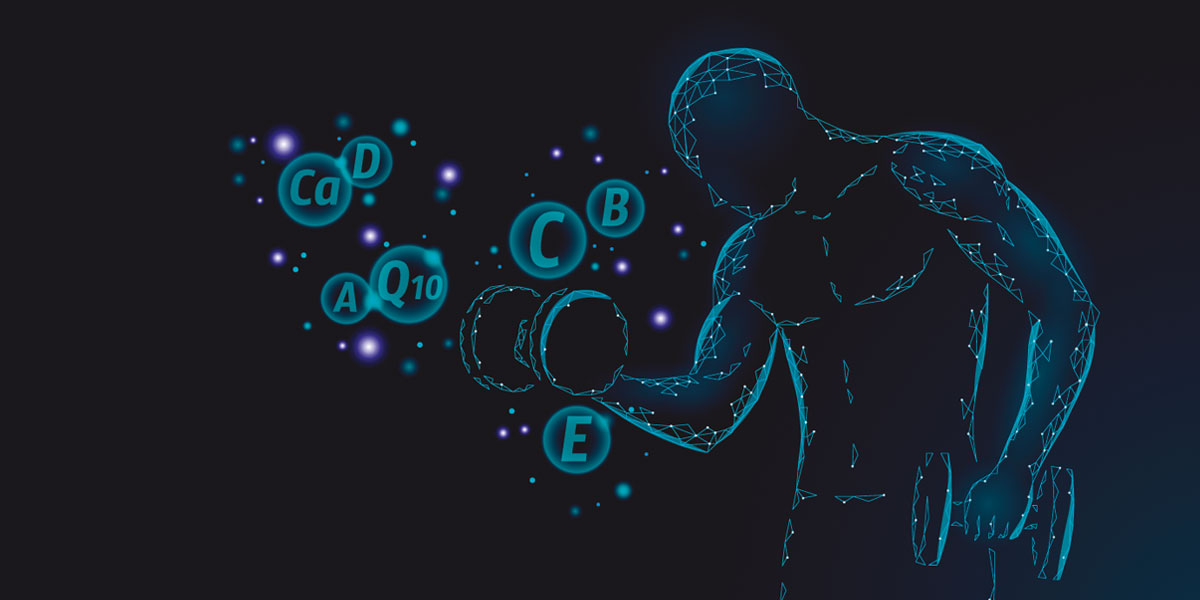- What is testosterone?
- What is the role of testosterone in body?
- Do women have testosterone?
- Do testosterone levels decrease with age?
- What kind of symptoms occur due to low testosterone levels?
- Why do testosterone levels decrease?
- When should low testosterone levels need to be treated?
- Does testosterone cause prostate cancer?
- Is every testosterone supplement the same?
- Are testosterone levels related to diet?
- Are testosterone levels related to exercise?
What is testosterone?
Testosterone is a hormone that plays important roles in the body. Testicles in men and ovaries in women make testosterone, and small amounts of testosterone are produced in adrenal glands in both sexes. Testosterone is more than a hormone. It has impact on many organs in the body and the general body health.
What is the role of testosterone in body?
It regulates the sexual drive (libido) and affects the sexual functions. The erection of the penis is significantly affected by the testosterone levels. It also influences bone mass (density), body fat distribution, muscle mass and strength, red blood cells, and sperm production.
Do women have testosterone?
Testosterone is also produced in the ovaries of women. It is considered that testosterone regulates sexual desire in women as well, and has significant impacts on bone density. The amount of testosterone in women are quite less than in men.
Do testosterone levels decrease with age?
The testosterone production in men starts when they are in the mother’s womb, increases during puberty, and reaches the highest levels in the following 10 years. After the ages of 30-40, testosterone levels in men start to gradually decrease. The decrease in testosterone to certain levels may cause various symptoms in the body. This level varies by age and from person to person.
What kind of symptoms occur due to low testosterone levels?
While testosterone levels may decrease with age, this situation can also result from the lack of testosterone production in the testicles of men. Sometimes, even if testosterone production is normal, low testosterone levels may occur due to the fast destruction of this hormone. No matter what the reason is, the decrease in testosterone levels causes a decline in bone density and body muscle mass, and an increase in fat mass. Besides, lack of sexual desire and sexual dysfunctions occur. Testosterone does not influence only the sexual desire in men. The desire to live, excitement, and the sense of competition are also affected by testosterone.
Why do testosterone levels decrease?
Decrease in testosterone levels may result from many reasons. Firstly, as the production of testosterone will decrease with age, testosterone levels in the blood may also decrease. Moreover, testosterone production in the testicles may diminish due to some diseases or medical conditions regardless of age. Also, in situations that cause an increase in the destruction of testosterone, the testosterone levels in the blood will decline. Testosterone in the body is broken down in two main ways. In the first way, an enzyme named 5-alpha reductase converts the testosterone into another form of testosterone called Dihydrotestosterone (DHT).
This new molecule is responsible for the formation of sex characteristics in men, such as pilosity and deepening of the voice. The other way the testosterone may take is a process called aromatization that takes place in the fat tissue. This process is realized by the aromatase enzyme and results in the formation of estrogen. Estrogen is a hormone, also known as the female sex hormone, that helps the formation of feminine characteristics. As can be understood, when the fatty tissue in the body increases, the conversion of testosterone into estrogen also increases, and this process results in situations such as sexual dysfunctions, the lack of sexual desire, and the enlargement and sagging of breast tissue.

When should low testosterone levels need to be treated?
Normal testosterone level values written next to the laboratory results cause confusion about this issue. Normal values for a 30-year-old man and normal values for a 70-year-old man cannot be the same. Besides, when it comes to testosterone, the concept of normal also becomes very controversial because the effectiveness of testosterone also differs from person to person. When a patient consults us with the complaints of erectile dysfunction and the lack of sexual desire, we measure the testosterone levels as well as the levels of “sex hormone-binding protein”, the main protein to which the testosterone in the body binds, thus calculating the free testosterone levels that are active.
If there are symptoms caused by low testosterone levels (such as lack of sexual desire, erectile dysfunction, osteoporosis, malaise, fatigue, lack of desire, angriness), testosterone supplementation is required.
Does testosterone cause prostate cancer?
Although prostate cancer depends on testosterone, external testosterone supplements do not lead to prostate cancer. The use of testosterone supplements in people diagnosed with prostate cancer is quite controversial and not recommended.
Is every testosterone supplement the same?
Testosterone is not secreted constantly in the body at all times. The testosterone levels increase especially in the mornings. Similarly, external testosterone supplements are expected to provide higher levels of testosterone during morning hours, but not to cause big changes in the body. Especially orally taken testosterone supplements are now rarely used because they have serious side effects on the liver.
Although testosterone supplements administered through injections at certain intervals are better alternatives in terms of side effects, with injections made every 3-4 weeks, it is not possible to maintain a testosterone level that is stable and that increases during morning hours and slightly decreases towards evening. Natural testosterone supplements, applied to the body in the form of cream or gel during morning hours and absorbed slowly through the day, come to the forefront in terms of both their effectiveness and the rare side effects.

